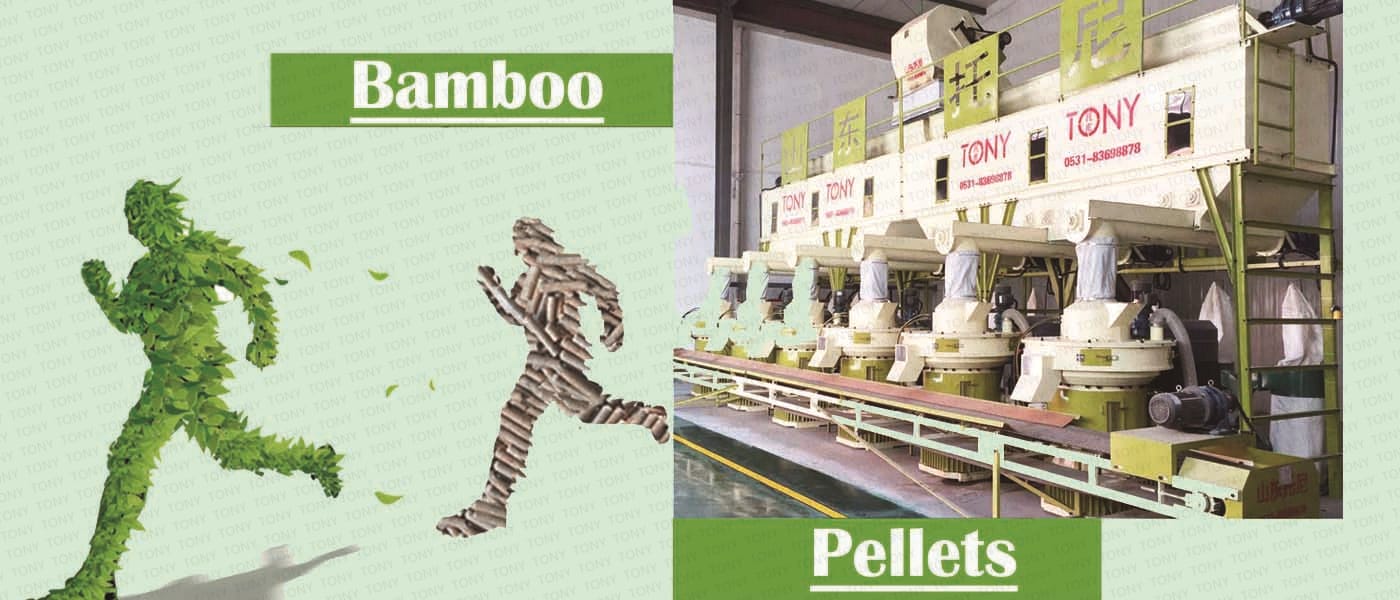The bamboo pellet machine, as a key equipment for converting abundant bamboo resources into high-value biomass pellets, is gradually becoming a promising path to prosperity. Its core logic lies in fully leveraging the advantages of bamboo resources and meeting the demands of the biomass energy market to achieve the transformation from resources to economic benefits. The following analyzes its potential for prosperity from multiple dimensions:
1. The core value of the bamboo pellet machine: Transform "bamboo" into "treasure"
The bamboo pellet machine, through processes such as crushing and compression, turns bamboo (including bamboo material processing waste, bamboo branches, bamboo stalks, bamboo shavings, etc.) into high-density and highly combustible biomass pellets. These pellets are not only high-quality environmental-friendly fuels but can also be applied in areas such as breeding bedding and organic fertilizer carriers, achieving efficient utilization of bamboo resources.
2. Leveraging bamboo resources: Cost advantage lays the foundation for profitability
Abundant raw materials and low costs: Bamboo has a short growth cycle (1-3 years to mature) and strong regeneration ability. Rural areas, especially in southern bamboo-producing regions, have abundant resources such as bamboo processing waste (such as bamboo chips, bamboo fibers, bamboo powder) and trimmed bamboo branches, which can be obtained for free or at low prices, significantly reducing raw material costs.
Easy raw material collection: Bamboo resources are concentrated in mountainous areas and rural areas, and farmers can collect the raw materials nearby, reducing transportation costs, making it suitable for small-scale production as a starting point.

3. Market demand for bamboo pellets: Wide application scenarios and stable sales channels
Environmental fuel market
When bamboo pellets are burned, there is no smoke or odor, and the sulfur content is low (much lower than that of coal), meeting the national environmental protection policies' requirements for clean energy and being able to replace coal for industrial boilers, household heating, biomass power generation, etc. With the promotion of the "carbon neutrality" policy, the demand for biomass pellets by industrial enterprises and heating companies continues to grow, and the market capacity is large.
Special agriculture and breeding fields
Bamboo pellets are hard in texture and have strong water absorption, which can be used as bedding for poultry (such as chicken houses, duck houses), having deodorizing and heat preservation functions; after processing, they can also be used as filling materials or carriers for organic fertilizers, helping ecological agriculture and expanding the income from the agricultural industry chain.
4. Economic Benefit Analysis: Low Investment, High Return
The bamboo pellet production line has a short payback period (usually 1-2 years).
5.Suitable for Rural Entrepreneurship: Low Threshold, Easy to Operate
Flexible equipment selection: Bamboo pellet machine (small in size), no need for complex workshops, controllable initial investment.
Easy to master the technology: The equipment is simple to operate, after training by the manufacturer, farmers can quickly get started without the need for professional technical background.
Relying on abundant bamboo resources, the government's support for the environmental protection industry, and stable market demand, bamboo pellet machines provide rural entrepreneurs with a "local material sourcing, local conversion, local profit-making" path to prosperity. This is particularly suitable for farmers in southern bamboo areas and返乡 entrepreneurs. Starting from small-scale production and gradually expanding the scale, it can not only achieve personal income increase but also promote the recycling of local bamboo resources, achieving a "win-win situation of ecological and economic benefits".





















